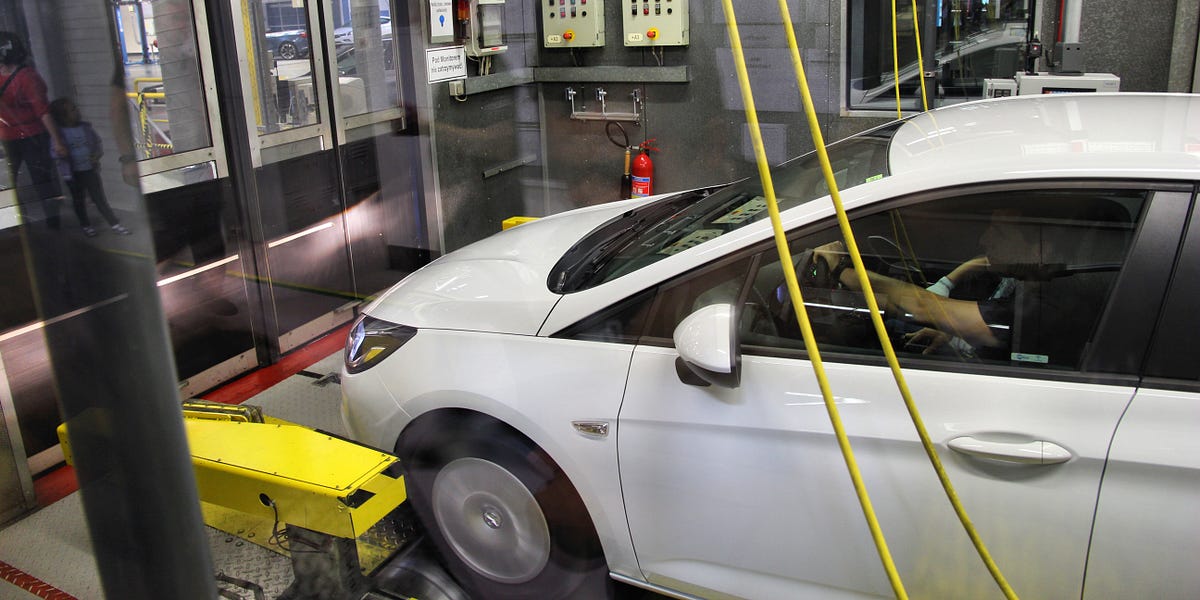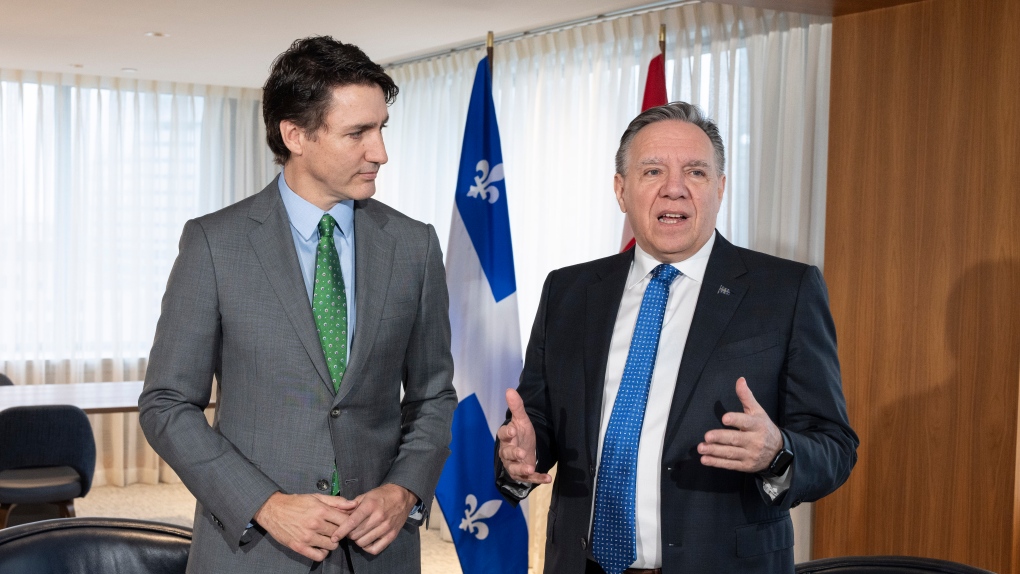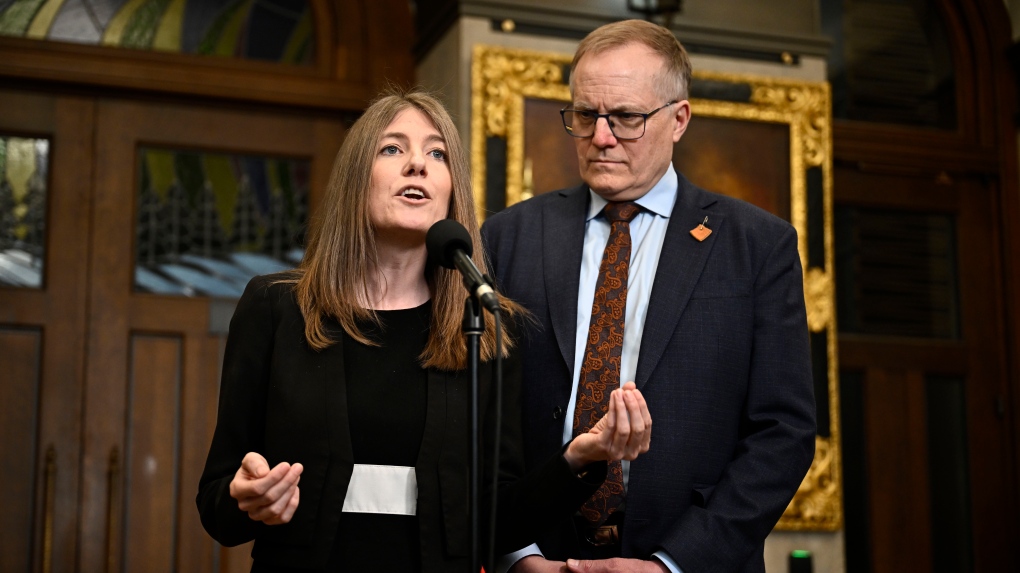Quebec premier threatens 'referendum' on immigration if Trudeau fails to deliver
The Canadian Press
Updated April 9, 2024 5:20 p.m. EDT
Published April 9, 2024 4:09 p.m. EDT
Quebec Premier François Legault on Tuesday ratcheted up pressure on the federal government to reduce the number of temporary immigrants in the province, threatening to hold a "referendum" on the issue.
Legault told reporters that launching a plebiscite isn't in his government's short-term plans, but he suggested that could change if Prime Minister Justin Trudeau doesn't deliver on Quebec's immigration demands.
"Do we hold a referendum on this eventually? Do we do it more broadly, on other subjects? It will depend on the results of the discussions," Legault said at the legislature.
During a meeting between the two leaders in March, Trudeau rejected Legault's call for the Quebec government to have full powers over who can immigrate to the province. But Legault said the prime minister showed a significant amount of "openness" on other matters related to immigration and that the two would meet again by June 30.
"Don't forget, Mr. Trudeau promised me a new meeting by June 30, so I expect results," Legault said Tuesday.
The premier said the 560,000 temporary immigrants in Quebec — a number he said includes asylum seekers, temporary foreign workers and international students — are straining social services and putting the French language at risk. And he says the vast majority of Quebecers agree with him.
"What I want to tell Mr. Trudeau is that the majority of Quebecers think that 560,000 temporary immigrants, it's too much," Legault said.
The immigration debate has been long-standing between the two governments. Earlier this year, the premier wrote to Trudeau about the influx of asylum seekers entering Quebec. In recent years, the province has welcomed a disproportionate share, including more than 65,000 of the 144,000 would-be refugees who came to Canada last year.
Quebec has demanded Ottawa reimburse $1 billion — the amount the province says it has cost to care for asylum seekers over the last three years. The two governments agreed to create a working group to study Quebec's demands.
Legault said Quebec's leverage in negotiations is to get the "support" of the population, adding that whether he will trigger a referendum on the issue depends on whether Trudeau gives the province more powers over the immigration file. Legault did not give details about the potential questions Quebecers would be asked to vote on.
Quebec already controls the number of economic immigrants to the province, but it shares responsibility with Ottawa over refugees, newcomers who arrive through the family reunification stream and temporary foreign workers.
After the mid-March meeting, Legault said the prime minister was open to giving Quebec more power, including by requiring temporary foreign workers to be approved by the province before they can move there. If Quebec can pre-approve foreign workers then it can ensure they speak French and their numbers can be controlled, Legault has said, describing pre-approvals as a sort of "veto power."







